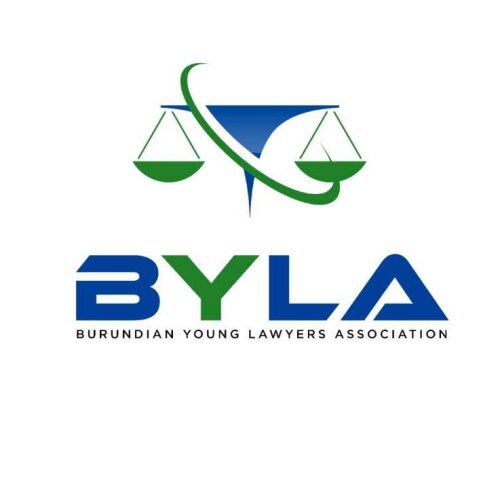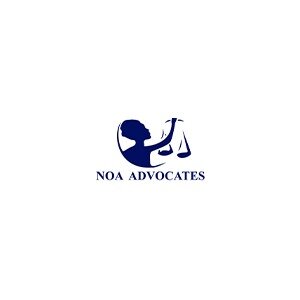Best Energy, Environment & ESG Lawyers in Bujumbura
Share your needs with us, get contacted by law firms.
Free. Takes 2 min.
List of the best lawyers in Bujumbura, Burundi
About Energy, Environment & ESG Law in Bujumbura, Burundi
Energy, Environment, and Environmental, Social, and Governance (ESG) law are rapidly evolving fields in Bujumbura, Burundi. These areas of law address issues surrounding the use and management of natural resources, environmental protection, sustainability, and responsible business practices. As Bujumbura continues to grow as the economic hub of Burundi, compliance with both local regulations and international standards is becoming increasingly important for businesses and individuals alike. From energy production and distribution to waste management and climate change mitigation, the legal framework is designed to balance economic development with environmental protection and social responsibility.
Why You May Need a Lawyer
Many individuals and businesses in Bujumbura require specialized legal guidance in the energy, environment, and ESG sectors. Some common situations where legal help can be crucial include:
- Securing permits or licenses for energy projects, such as solar, hydro, or fossil fuel operations
- Navigating compliance with environmental regulations regarding pollution control, waste management, or water usage
- Addressing land use and zoning issues related to industrial projects or resource extraction
- Responding to government inspections, sanctions, or penalties for alleged violations
- Structuring investments in energy and infrastructure with attention to ESG obligations
- Drafting and reviewing contracts for energy supply, distribution, or environmental services
- Handling disputes with government agencies, communities, or other stakeholders regarding environmental or energy impacts
- Implementing sustainable business practices and reporting standards aligned with ESG criteria
Lawyers who specialize in these fields understand both the technical and regulatory complexities involved, ensuring you can make informed decisions and avoid costly legal pitfalls.
Local Laws Overview
The legal landscape in Bujumbura concerning energy, environment, and ESG issues is governed by a combination of national laws, regional agreements, and international conventions. Key aspects include:
- Energy Regulation - The Burundian government regulates energy production and distribution, primarily handled by the state-owned energy provider REGIDESO. Permits and licenses are necessary for most energy projects, and independent producers must comply with sector regulations and tariffs.
- Environmental Protection - The main framework is provided by the Environmental Code, which establishes guidelines for environmental impact assessments, pollution standards, and conservation measures. Projects that might impact the environment typically require approval from the Ministry of Environment, Agriculture, and Livestock.
- Land and Resource Use - Land rights, including for resource extraction and infrastructure, are regulated by national land laws. Proper acquisition and use of land for energy or industrial purposes require adherence to property laws and, in many cases, community consultation.
- ESG Standards - While ESG reporting is still relatively new in Burundi, there is growing attention to responsible business conduct, anti-corruption, workplace safety, and community engagement, especially for companies seeking international investment or partnerships.
- International Treaties - Burundi is a party to several regional and international environmental agreements, including conventions related to climate change, biodiversity, and sustainable development. These may influence regulatory decisions at the national level.
Frequently Asked Questions
What permits do I need to develop an energy project in Bujumbura?
You will typically need an environmental impact assessment approval, an energy production license from the relevant authority, and may require additional local permits depending on the project's specifics.
How are businesses held accountable for environmental pollution?
Local laws impose penalties, fines, or corrective requirements for violations of pollution standards. Authorities may also suspend or revoke operating permits for non-compliance.
Do renewable energy projects have specific legal requirements?
Yes, renewable energy projects must meet both general energy regulations and often specific guidelines regarding technology, grid connection, and environmental impact.
Are there incentives for adopting sustainable or green business practices?
While incentives are limited, there are some government and donor-supported programs that promote clean energy, resource efficiency, and sustainability. These may offer technical or financial support for eligible projects.
Can a community oppose a development project?
Yes, especially if the project affects land rights, water resources, or local livelihoods. Legal processes exist for public consultation and grievance mechanisms.
What ESG factors should companies consider in Burundi?
Companies are increasingly expected to address environmental impact, social responsibility (such as fair labor practices and community engagement), and good governance (including anti-corruption measures).
Who enforces environmental laws in Bujumbura?
The Ministry of Environment, Agriculture, and Livestock and its related agencies are responsible for enforcement, supported by local government bodies and, in some cases, specialized agencies or courts.
How can I handle a dispute about land use for an energy project?
Land disputes may be resolved through negotiation, mediation, administrative hearings, or, if necessary, through the court system or specialized tribunals.
Do multinational companies have additional ESG requirements?
International companies often follow their home country standards and are subject to increased scrutiny regarding ESG practices, especially if seeking financing or partnerships from international investors.
How can I learn if a project is compliant with local energy and environmental laws?
You can consult with a legal professional, request documentation from the project developer, or inquire with relevant government agencies responsible for permitting and oversight.
Additional Resources
If you are seeking further information or assistance, consider reaching out to these organizations:
- Ministry of Environment, Agriculture, and Livestock (Ministère de l’Environnement, de l’Agriculture et de l’Elevage)
- Bureau Burundais des Recettes (for energy taxes or fees)
- Agence Burundaise de Régulation du Secteur de l’Eau Potable et de l’Energie Potable
- Nongovernmental organizations active in environment and sustainable development in Bujumbura
- Local chambers of commerce with ESG, environment, or energy committees
- Regional offices of international agencies such as UNEP or the World Bank with programs in Burundi
Next Steps
If you need legal assistance in the field of energy, environment, or ESG in Bujumbura, consider the following steps:
- Gather all relevant documentation related to your project or legal issue, such as permits, correspondence, and any notices from authorities.
- Contact a qualified lawyer or legal advisor with experience in energy, environmental, or ESG matters in Burundi.
- Seek an initial consultation to discuss your circumstances, legal options, and potential strategies.
- Follow up regularly with your legal representative, and make sure to comply with all legal and procedural requirements in a timely manner.
- Engage with relevant government bodies or industry associations to stay informed of regulatory updates and opportunities for compliance or incentives.
Legal issues in these fields can be complex, but with the right guidance and resources, you can ensure compliance, protect your interests, and contribute to sustainable development in Bujumbura.
Lawzana helps you find the best lawyers and law firms in Bujumbura through a curated and pre-screened list of qualified legal professionals. Our platform offers rankings and detailed profiles of attorneys and law firms, allowing you to compare based on practice areas, including Energy, Environment & ESG, experience, and client feedback.
Each profile includes a description of the firm's areas of practice, client reviews, team members and partners, year of establishment, spoken languages, office locations, contact information, social media presence, and any published articles or resources. Most firms on our platform speak English and are experienced in both local and international legal matters.
Get a quote from top-rated law firms in Bujumbura, Burundi — quickly, securely, and without unnecessary hassle.
Disclaimer:
The information provided on this page is for general informational purposes only and does not constitute legal advice. While we strive to ensure the accuracy and relevance of the content, legal information may change over time, and interpretations of the law can vary. You should always consult with a qualified legal professional for advice specific to your situation.
We disclaim all liability for actions taken or not taken based on the content of this page. If you believe any information is incorrect or outdated, please contact us, and we will review and update it where appropriate.
Browse energy, environment & esg law firms by service in Bujumbura, Burundi
Bujumbura, Burundi Attorneys in related practice areas.












